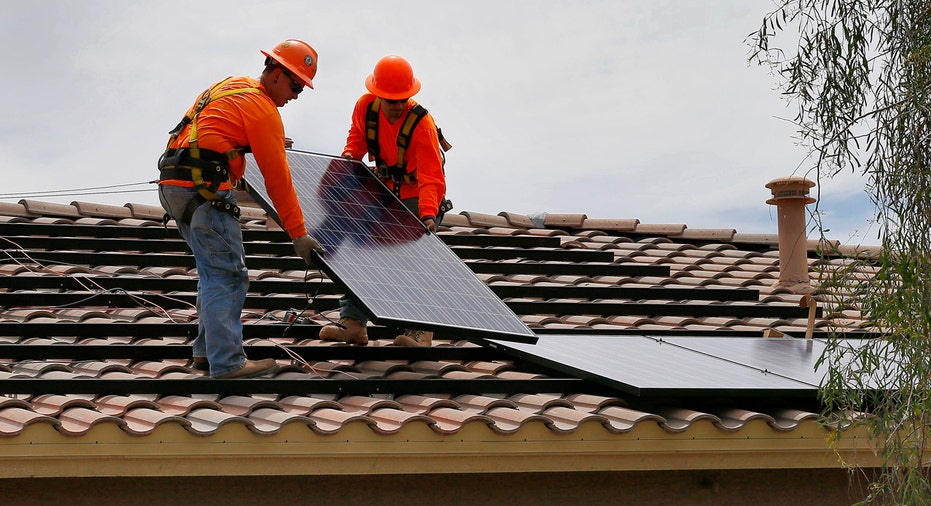Big Solar Fight Breaks Out Between Utilities, Homeowners

It's a closely watched fight with broad implications for the solar industry and the push by the Administration to go green.
An Arizona utility that generates and distributes electric power in one of the country’s sun-drenched areas has asked the state’s Corporation Commission for assistance in its fight with homeowners who have installed their own solar power panels, typically on house rooftops.
Tucson Electric Power Co. asked the agency, which sets utility rates, to let it double its basic monthly service charge for residential customers, from $10 to $20 per month, as well as assess new fees, penalties, and charges on rooftop solar customers. A study done by the utility says that customers with solar panels, on average, shift $67 a month in costs to non-solar customers because they pay less for grid upkeep.
The fight has the potential to go to the courts and set standards nationwide, with environmentalists like the Sierra Club arguing solar homeowners should be able to take a free ride on a utilities' network, while the Arizona utility argues those without solar panels will have to pay for that crowd with rate increases.
Tucson Electric Power “is singling out solar customers with their proposal to increase fees - which is not only wrong, but unprecedented,” said Chad Waits, president and owner of Net Zero Solar, in a statement. “Rural customers don’t have to pay more to be connected to the grid, yet the infrastructure to take power to them costs exponentially more per customer. Winter visitors don’t have to pay more to be connected to the grid, yet their houses use minimal amounts of power while they are away during the summer.”
Waits also says: “When determining costs of solar, TEP should also recognize the value that solar adds in reducing carbon emissions, reducing line losses, and mitigating costs of building new power plants. Only then will solar customers be credited the true cost of their investments in generation capacity that TEP uses every day for free.”
The same battle is now being waged in states like Oklahoma and Utah. For instance, Utah’s Public Service Commission recently took public comment and expert testimony on how to charge utility customers a “sun tax” for their solar power use.
A group of Utah customers cut their electric bills via solar power panels on their rooftops. Those solar power panels generate excess power during the day, and the customers then get credited for that power when they draw electricity at night.
But the state’s biggest utility, Rocky Mountain Power said wait a second. It effectively is argued those solar customers are freeloading off the electric grid by not paying for their use of the electric grid’s fixed costs, like the wires and poles that deliver electricity to their washers and dryers.
So, last summer, the utility proposed a new “sun tax” charged against solar customers to cover those costs. But the Utah Public Service Commission nixed the new tax, until further notice, asking for more analysis of the cost-benefits of rooftop solar.



















